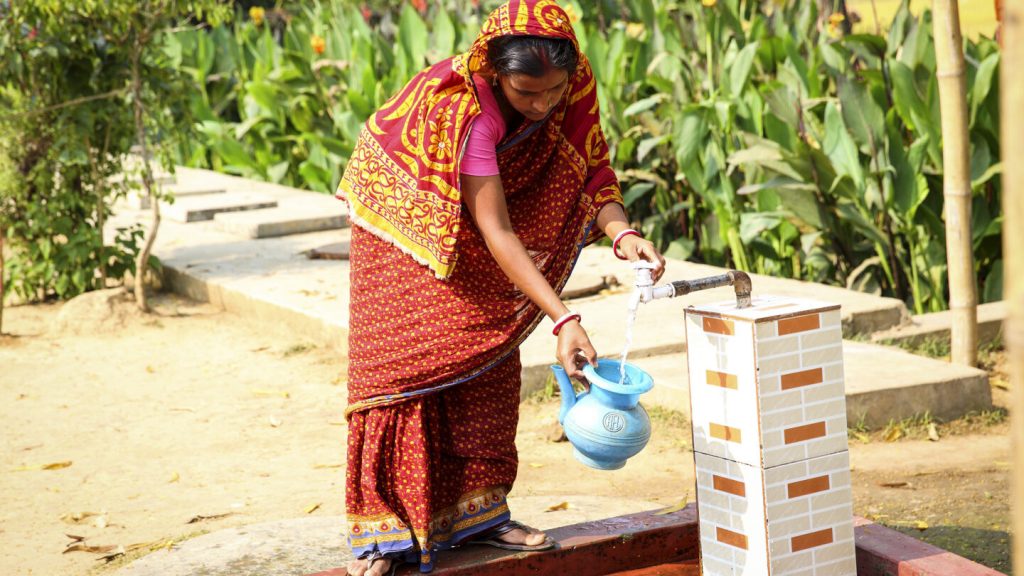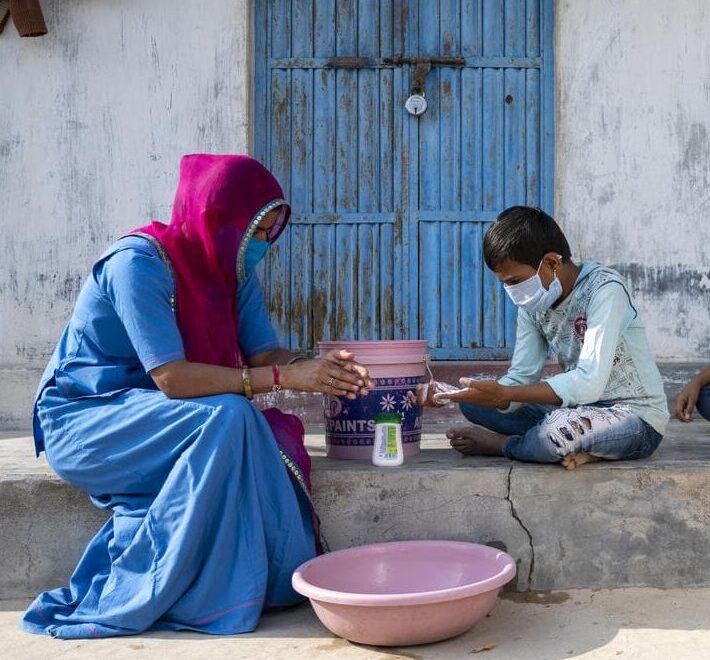Training Landscape of Bangladesh
The garments sector of Bangladesh is dominated by women (60-70%), with exports exceeding $46.99 billion in fiscal year 2023, but they
have low literacy, knowledge, and control over their working conditions. With significant challenges ahead in achieving SDG 10, which aims to reduce inequality, it is critical to recognize that equal access to safe drinking water and sanitation is critical to reducing overall inequalities.
Many international organizations, including WaterAid, Swiss Contact, and the ILO, are collaborating with local-level NGOs, private firms,
and academic institutions to improve working conditions for women in the RMG sector. This includes removing gender-based barriers, discriminatory attitudes and practices at work, addressing sexual harassment on the job and on the way to work, improving workers’ financial literacy and access to financial services, and training female workers to build confidence and aspire for higher-level jobs in order to empower RMG workers’ livelihoods.
WASH Training
Water, Sanitation, and Hygiene (WASH) training is one such sector that could be leveraged to add value across the supply chain and improve
worker conditions in the workplace and community. Strengthening workers’ capacity through training of trainers (ToT) focused on interventions related to water, sanitation, and hygiene (WASH) will produce trainers known as “Change Agents” or “Behavior Change Agents” who will promote and empower the RMG factory workers with hygiene education and
practices. These trainings will aim to improve the skills of garment workers so that they can promote behavior change in the workplace and in their communities. Water and sanitation have strong gender dimensions that must be considered in management and use: men’s and women’s daily experiences with water and sanitation can be very different, and these inequalities must be consciously considered from the beginning of any intervention.
To bring this to action, factory management/authorities must encourage professionals, particularly those working in the HR and Compliance teams, to study water, sanitation, and hygiene, as well as water resource management, and advance into technical and leadership roles, so that they can train and build a strong, inspired, and diverse workforce of qualified and motivated trainers and technical personnel to provide
knowledge on universal access to water, sanitation, and hygiene.

Women, for example, are frequently assumed to be interested in, and responsible for, domestic water supply and household needs, whereas men are frequently consulted and involved in waterworks: financing or managing water resources. This means that any water intervention must consider not only the impact on practical, everyday needs but also strategic interests. Studies have shown that women are economically and socially empowered when they have access to clean water and sanitation. If done incorrectly, it may jeopardize women’s positions at home, work, and in the community.
Environmental and Social Benefits
Learning and sharing WASH knowledge fosters a sense of community at work and allows the “Change Agents” to educate others about handwashing, safe water, improved sanitation, and menstrual hygiene management. The transformative nature of “Change Agents,” particularly women’s leadership and decision-making power in water and sanitation, must be recognized as doing so will instill a sense of responsibility in “Change Agents” who received WASH training to inform their coworkers and people around them to change their behavior and lead a more hygienic life.
One of the most difficult aspects of skill development and behavior change projects is keeping the training or exercise going once the project is completed. Adding to the difficulty is the lack of political will to recognize that the participation of both men and women is critical to long-term water, sanitation, and hygiene management. Developing and sustaining women’s leadership in the WASH sector at the local and national levels requires enabling policy frameworks supported by resources, training, and political will. Thus, forming WASH Committees with “Change Agents” can help transform workers’ lives which is both sustainable and impactful.
Click here to read article on importance of skilling.

Ayesha Sharif Alif
Associate Consultant


Leave a Comment